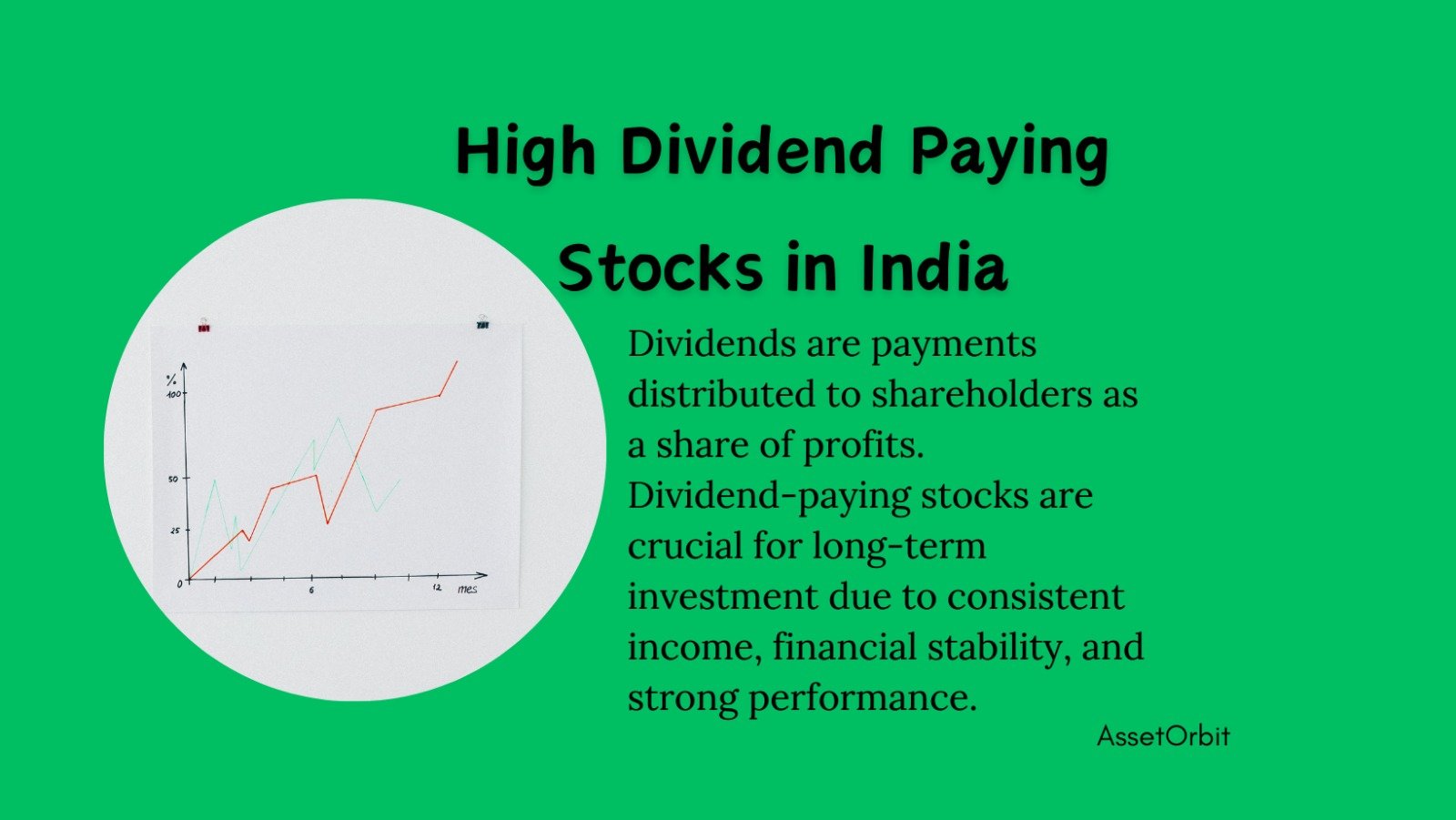Long-term investment requires high-dividend stocks due to their stable income stream, financial stability, and strong performance. Investors consider dividend yield, growth, and payout ratio. Indian high-dividend stocks include Balmer Lawrie, Coal India, Oil India, Power Grid, and ONGC.
In Short
What Are Dividends?
Dividends are payments that companies distribute to their shareholders as a share of their profits. These payments provide investors with a portion of the company’s earnings and are a way for shareholders to receive a return on their investment.
Dividend-paying stocks are crucial for long-term investment due to their consistent income stream, financial stability, and strong performance. These stocks offer both income and potential capital appreciation, making them valuable for investors seeking both income and capital appreciation in the Indian market.
Why Are Dividends Good?
High-dividend-paying stocks provide a steady income stream and reliable returns for investors. These companies are seen as financially stable and profitable, making them appealing for long-term investors seeking a combination of regular income and potential capital growth.
3 Important Dividend Metrics for Investors
1. Dividend Yield
The dividend yield is the annual dividend payment of a stock divided by its current market price, represented as a percentage. It aids in the comparison of dividend-paying equities by allowing investors to assess an investment’s income prospectively in relation to its current market value.
2. Dividend Growth
The dividend growth rate is a measure of a company’s annualized percentage increase in dividends over a specific period, indicating its ability to increase payouts over time, and investors often seek stocks with a history of sustained dividend growth.
3. Dividend Payout Ratio
The dividend payout ratio is the percentage of a company’s earnings distributed as dividends to shareholders, calculated by dividing total dividends by net income. A lower ratio indicates a company’s preference for growth or potential downturns, while a higher ratio suggests stability and commitment to shareholder returns.
The Story of ITC: The Power of Patience and Dividends
In the early 1990s, when most Indian investors were pursuing fast-growing industries and fashionable stocks, a few seasoned investors discreetly bought stocks of ITC Ltd., a corporation best known for its tobacco business but with expanding holdings in FMCG, hotels, and paperboards.
While ITC did not have the swift multibagger reputation of other IT companies, it regularly rewarded its stockholders with substantial and reliable dividends year after year. In the backdrop, dividend payments from ITC steadily accumulated over decades, providing investors with consistent cash flows.
Now fast forward to the present day: long-term holders of ITC have not only reaped the benefits of capital appreciation but have also established passive income streams because of the company’s hefty dividend distributions. High dividend-paying stocks may protect their owners from market instability, as ITC continued rewarding its shareholders even during periods of volatile markets.
This real-life example demonstrates that high dividend stocks are about more than simply stock price gain; they are also about continuous income and asset preservation over time.
High Dividend Paying Stocks in India
| Company Name | Industry | Market Cap (in INR) | Dividend Yield(%) |
|---|---|---|---|
| Balmer Lawrie Investment | Producer Manufacturing | 1.13TCr | 6.47% |
| Coal India | Mining |
2.37LCr
|
6.37 |
| Oil India | Oil & Gas |
41.29TCr
|
5% |
| Power Grid Corporation | Power |
2.24LCr
|
4.70% |
| ONGC | Oil Refining/Marketing | 2.75LCr | 4.69% |
| REC Ltd | Finance/Rental/Leasing | 1.14LCr | 3.25% |
| Hindustan Zinc | Mining |
1.35LCr
|
3.25% |
Highest Dividend Paying Stocks Last 10 Years in India
1. Vedanta Ltd: A mining and metals company with a 10-year average dividend yield of 6.5%.
2. Hindustan Zinc Ltd: Average dividend yield of 5.3% over the last 10 years.
3. Indian Oil Corporation Ltd: A petroleum refining company, with a 10-year average dividend yield of 5.2%.
4. SAIL: India Steel Authority Ltd. A steel firm with a 10-year dividend yield of 4.9% on average.
Final Thoughts
High dividend-paying stocks provide a balanced income and growth plan, according to the report; therefore, investors should think about them for the long term. Stocks of companies that regularly pay out large dividends are a positive indicator of their financial health and security. An investor may construct a robust portfolio for a fruitful investing journey in the Indian market by carefully considering aspects such as dividend yield, payout ratios, and overall financial health.
FAQ
What are the indicators of a good dividend stock?
A good dividend stock has a competitive dividend yield, a sustainable payout ratio, a consistent dividend history, and a market position. A moderate ratio indicates financial stability and potential for future dividend growth. A consistent dividend history reflects management’s commitment to shareholder returns. Assessing the company’s financial health, market position, and industry conditions provides a comprehensive picture for investors to evaluate the reliability and potential of a dividend stock for long-term investment.
What are dividends measured in?
Dividends are commonly expressed in terms of currency per share. The most common unit of measurement is the amount of money paid per share of stock. A firm, for example, may declare a dividend of INR 5 per share. This means that for every share of stock an investor owns, they will earn INR 5 in dividend payments. Dividends are expressed as a fixed amount per share rather than as a proportion of the current market price of the stock.












Leave a Reply